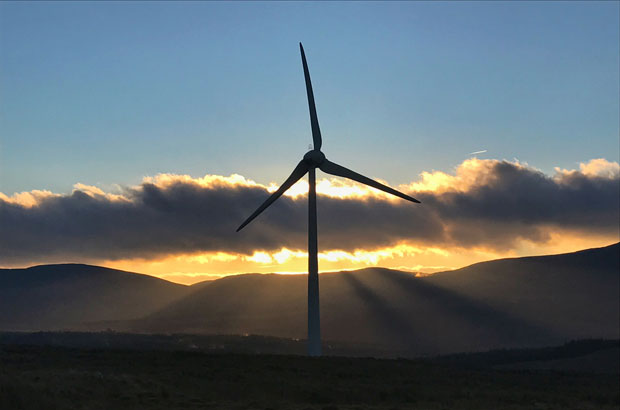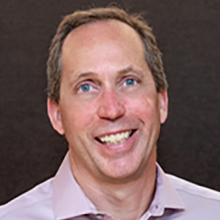My 11-year old son Jude has cystic fibrosis, a genetic disease that typically leads to significant and often life-threatening lung problems. That meant that this summer’s fire season was personally quite brutal for my family. Given how global warming is a factor leading to fiercer and more frequent fires, the persistent smoke was an unwelcome reminder of climate impacts happening now.The fires hurt us on so many levels—displacing families from their homes, destroying our beautiful forests, parching the fields that grow our food and the agricultural workers who tend them—and complicating the simplest of activities for my own son.
At times it can be hard for me to find hope through the fog of pollution and civic dysfunction currently gripping our nation. I don’t know about you, but I’ve found myself asking: is there a path out of this?
Yes. I believe the path of hope begins in large part right here in the Pacific Northwest, where we can accelerate change both in the region and beyond. I grow more determined as we have a unique leadership opportunity to transition to 100% clean energy. That means that all of our energy will be powered by highly efficient and clean sources like wind and solar and through energy efficiency. We can also rapidly accelerate the decarbonization of our transportation systems by electrifying our cars and buses, and by giving consumers clean fuel choices to get around without burning oil and other fossil fuels.
The shift has started. On the same day that President Trump announced his desire to roll back the Clean Power Plan, the City of Spokane passed an ordinance committing to 100% renewable energy by 2030. Just this month, California Governor Jerry Brown signed a groundbreaking bill that committed the state to achieving 100% clean energy by 2045.
Climate Solutions marked the kickoff of the recent Global Climate Action Summit in San Francisco by releasing Within Reach: The Path to 100% Fossil-Free Electricity in the Pacific Northwest. This hot-off-the-presses research also takes a deeper look at how Washington can make an affordable, timely, and reliable transition by phasing out coal and gas, and investing in renewable energy, energy storage and energy efficiency.
I am entering the fall full of tremendous hope, as we have the roadmap in our collective hands. Looking ahead to the critical places where we can make a significant difference to accelerate solutions and knowing there is a path that isn't just possible, but also real and true.
What’s the next critical first step to keep momentum on that path? The November ballot.
Right now, Washington State voters have the opportunity to pass a historic ballot measure that will deliver more clean air and clean energy for Washington. The initiative invests in protecting our air and water and in new clean energy infrastructure across the state by charging a fee on carbon pollution emitted by the largest polluters. Initiative 1631 is a practical first step to ensure clean air and clean water for everyone in Washington; it gives us the chance to pass on a healthier state to the next generation. Climate Solutions is pitching in every way we can—with dollars, door knocking and more. Your help matters too. So far the oil industry has raised $20 million to fight I-1631, so it will take people power to win on November 6th. Please check Yes on 1631 for the many ways you can lend support right away, no matter where you live.
In Oregon, Portland voters will have the opportunity to vote on the Portland Clean Energy Fund. Yes on 26-201 is an exciting ballot measure to build a just, clean energy future for Portland. The Portland Clean Energy Fund will weatherproof homes, build rooftop solar, provide job training, and fund green infrastructure—prioritizing the communities most impacted by the climate crisis and inequality. Even if you’re not a Portland voter, there are ways to support this grassroots effort.
Accounting for the cost of carbon pollution through smart policies like Initiative 1631 and the Portland Clean Energy Fund is just one of the many steps we need to take to curb the climate crisis. Between now and the start of the new year, Climate Solutions is also doing crucial behind-the-scenes work to get ready for the 2019 legislative sessions.
We will be advancing several major policies with lawmakers, including the Clean Energy Jobs Act in Oregon. After more than a decade of work, the state of Oregon is poised to pass a policy that will cap carbon pollution and invest hundreds of millions of dollars in clean energy solutions to grow good jobs and cut carbon.
In Washington, we will advance a key policy to move our grid towards the goal of being 100% fossil fuel-free. Given that Washington State is the one West Coast jurisdiction without a clean fuels standard to advance alternatives to oil, we will also be working to have the Evergreen State join and expand that market from B.C. all the way to California. We need clean, not fossil fuels, to power engines that we cannot electrify.
We know that we must take action on climate change because of the devastating impacts that are already occurring. We know that if people make a personal connection to the problem they’re far more likely to take action to solve it. We need to share our stories of how we’re impacted—we must not shy away from talking about climate and the radical but true idea that we can also share that we can still solve this—we have the map. Now we need to act to turn this into reality.
We are on the cusp of making big steps on the path to 100% clean energy. We are ready to show that in an era defined by federal inaction and growing climate impacts, the Pacific Northwest and the entire West Coast can stand up strong and provide powerful leadership.
We all need to do our part to bring this vision to fruition. We want to hear your ideas, your input and ways you can add to the collective wisdom of this needed work.
When daunted, I stay determined thinking of the future I know my son and his generation deserves. Let's invest in it together leading up to the November ballot and beyond.





